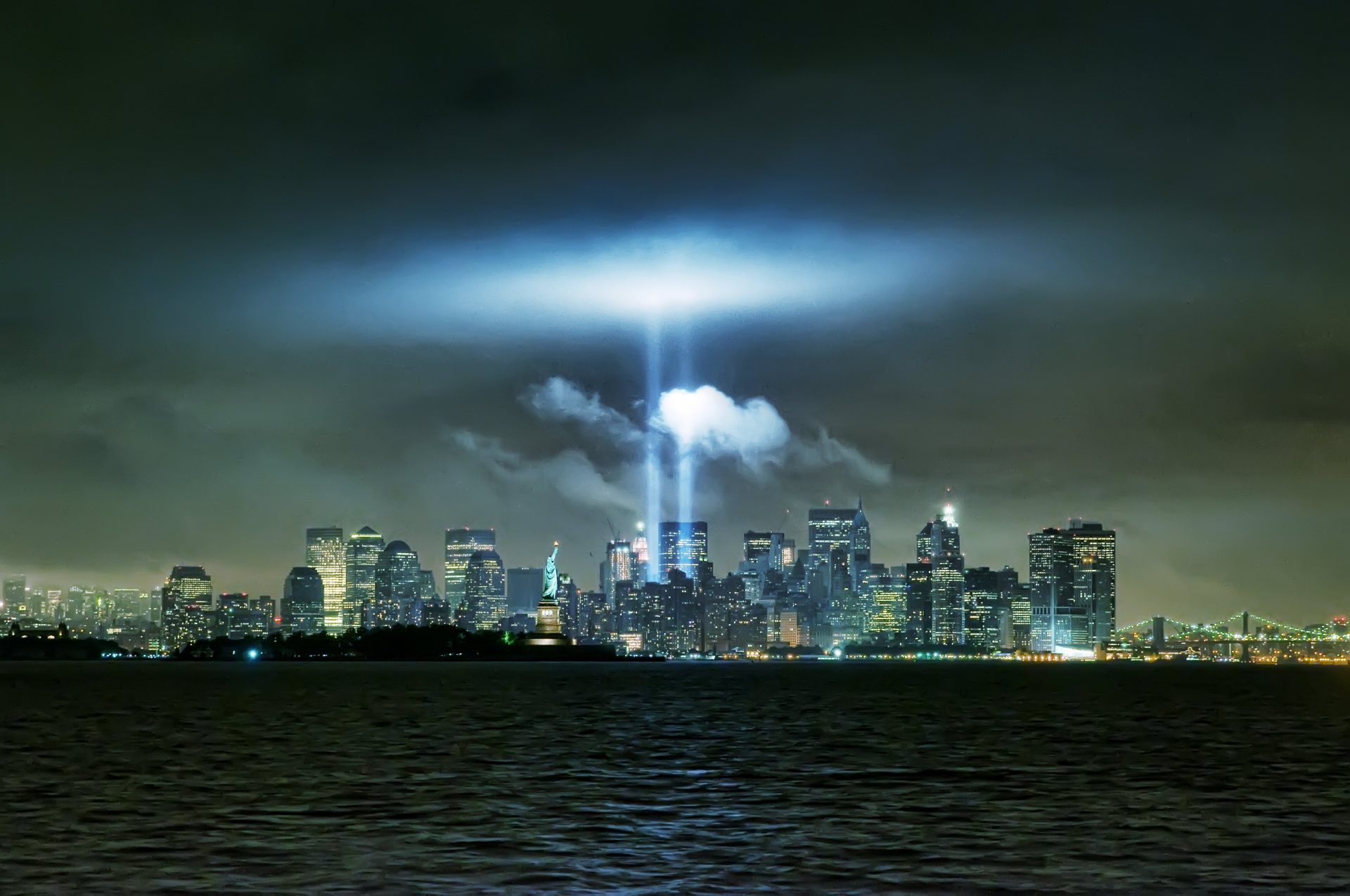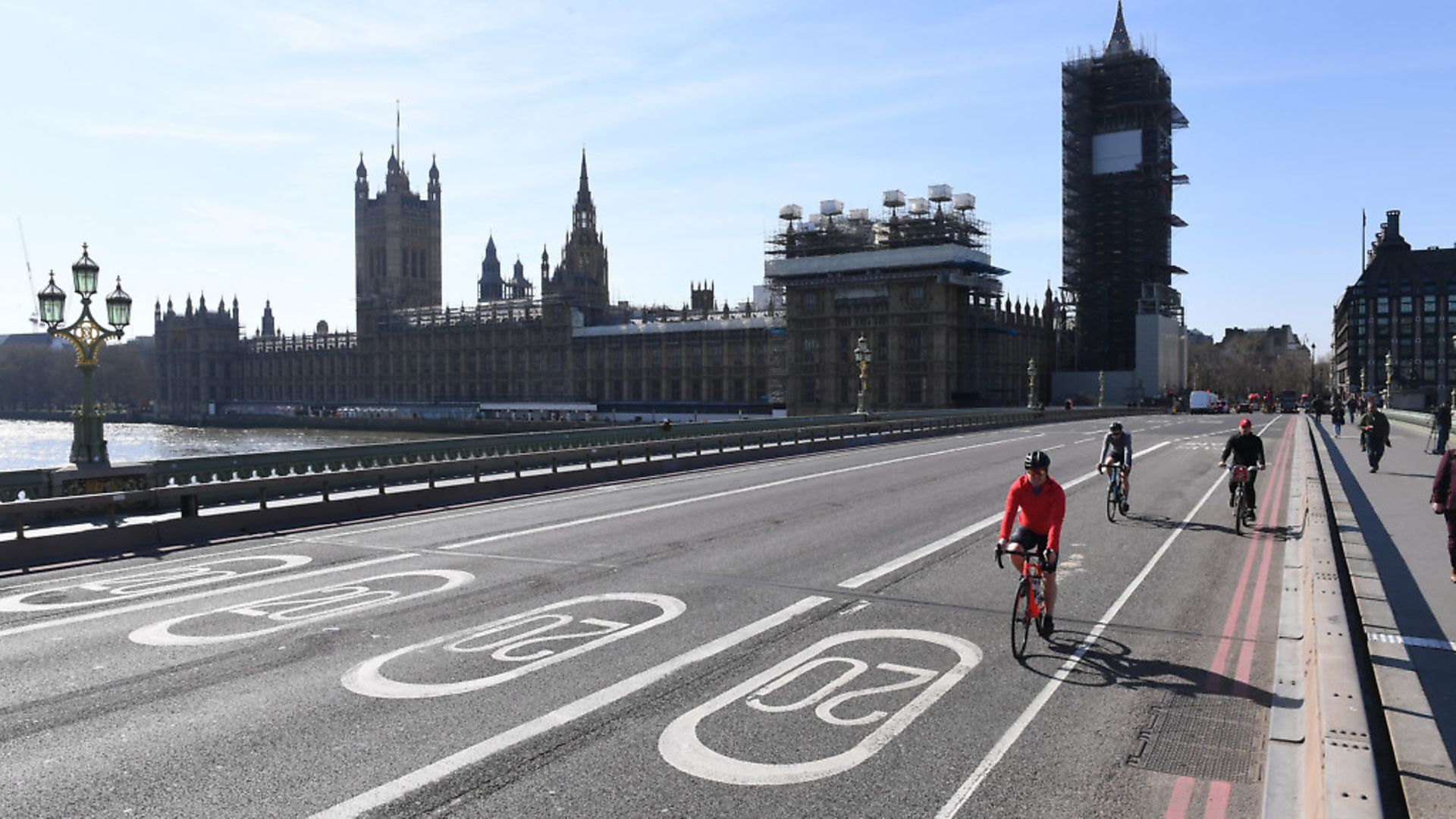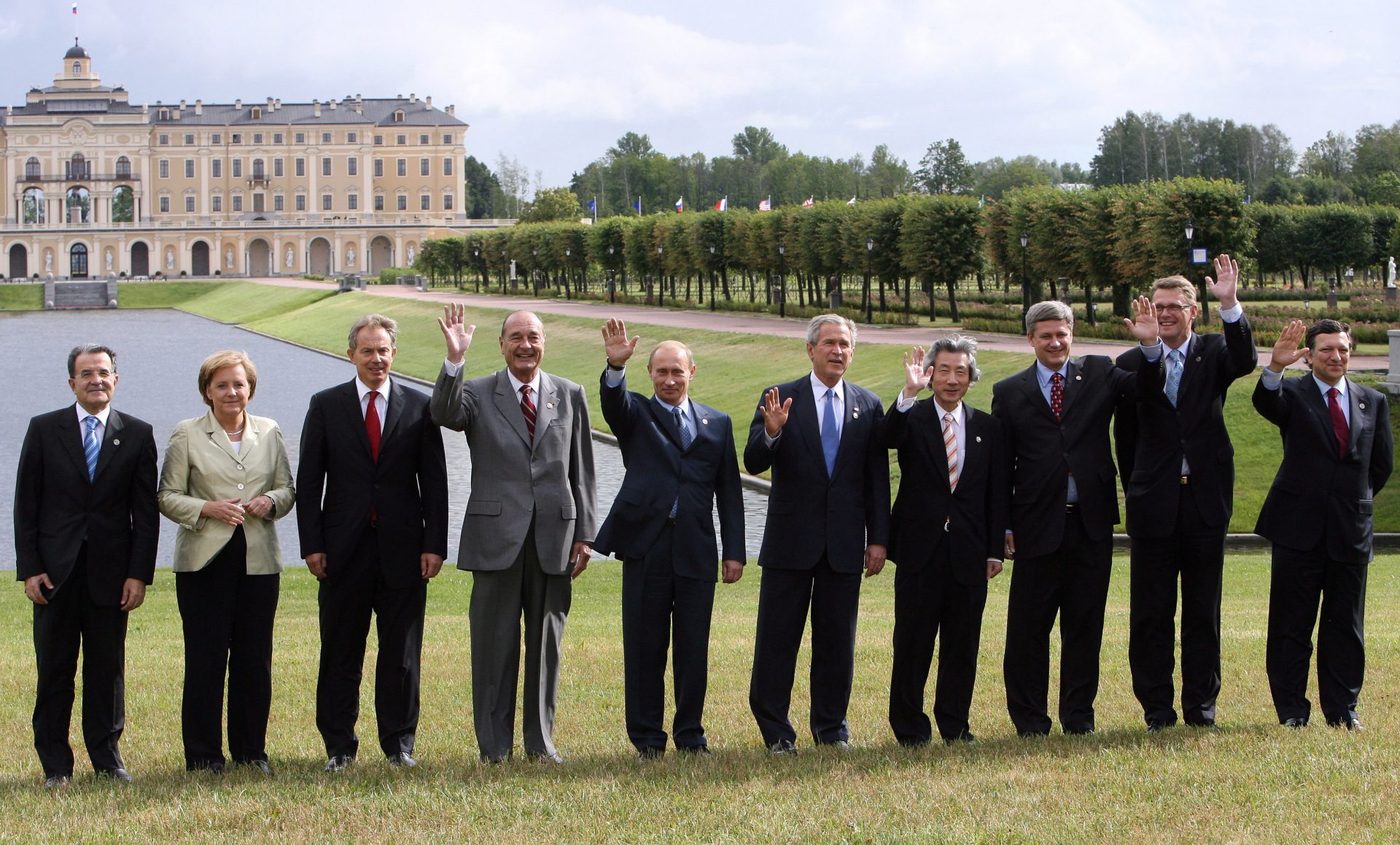On the morning of September 11, 2001, America’s prospects appeared as bright as the clear blue sky over Lower Manhattan. The Federal government was running a budget surplus, the US economy was finally turning after the dotcom crash. The most powerful nation on earth was at peace.
The Al-Qaeda terror attacks against New York and Washington awoke a slumbering giant. President George W. Bush declared a “global war on terror”, an awesome display of diplomatic, economic and military power. The final cost was more than $2 trillion and the lives of 6,000 US soldiers in Afghanistan and Iraq, with thousands more seriously wounded.
Bush’s campaign to make the US safe from terrorism was an understandable response to the worst ever attack on American soil but one with far-reaching consequences. The war on terror became the touchstone for alliances as well as a gigantic exercise in nation-building founded on a belief in America’s ability to reshape the world in its own image, a belief often mistakenly held by other imperial powers in history.
There were moments over the past two decades – the removal of the Taliban, the toppling of Saddam Hussein, the Arab Spring, the fall of Muammar Gaddafi – when US-inspired regime change seemed to offer democracy a fighting chance. But while not exactly sound and fury signifying nothing, America’s “imperial itch” had reached its limits well before the fall of Kabul to Taliban forces last month.
The US withdrawal from Afghanistan – completed with an indecent haste that helped to precipitate the collapse of the Afghan government – is a stinging coda to the 9/11 era.
The 20th anniversary of the terror attacks, never a moment for celebration, threatens to be hijacked by the Taliban. For no one – certainly not president Joe Biden – ever imagined it would be marked by the establishment of the Islamic Emirate of Afghanistan.
Andrew Neil, Britain’s pundit-in-chief, cast the fall of Kabul to the Taliban as one of America’s worst-ever setbacks: a combination of the Bay of Pigs fiasco, the fall of Saigon and shades of the Iran hostage crisis in 1979. “The Taliban are calling all the shots,” he said on GB News, “for the world’s only superpower that is an ignominious and shameful position to be in.”
Historical analogies are often misleading, especially when they translate into predictions about the irreversible decline of US power. It is easy to forget that John F. Kennedy recovered from the Bay of Pigs fiasco to outmanoeuvre Nikita Khrushchev in the Cuban missile crisis. Ronald Reagan’s victory in the Cold War followed less than a decade after Jimmy Carter’s humiliating failure to rescue the US hostages in Tehran. Ten years after Black Hawk Down in Somalia, the US was amassing forces to invade Iraq.
Writing off America has become second nature to some people who swallow too easily the current Chinese leadership’s mantra that the US is in absolute decline – a self-serving narrative that ignores the implications of a more Sinocentric world.
More likely, we are in danger of entering what political strategist Ian Bremmer calls “the G-Zero” world, where no nation is prepared to exercise global leadership and every nation acts in pursuit of its own narrow interest; in short a new era of great power rivalry.
To understand America’s place in this world and its future foreign policy options, it is first necessary to understand how we got here, starting with the road to Kabul.
In late May 2001, I was invited to join a group of four so-called experts to brief president Bush ahead of his inaugural visit to Europe and his first meeting with president Vladimir Putin, still a relatively obscure figure best known as a former KGB agent in Dresden, East Germany, and a backroom operator in post-communist St Petersburg.
Bush took centre stage in the Yellow Oval Room on the first floor of the White House overlooking the Truman balcony, a genial figure who spoke in a “good ole boy” Texan twang and obviously appreciated the odd earthy joke. (Colin Powell, Bush’s secretary of state, once described the president as a “towel slapper” because of his locker-room humour).
Although we were forbidden to take notes, my recollection, later corroborated by the Oxford historian Timothy Garton Ash also present, was that the subject of terrorism barely came up in the conversation. Bush questioned us about Europe’s leaders (he preferred the loquacious Jacques Chirac to the slippery Gerhard Schroeder), voiced concern about Iran’s missile capability and was obviously fascinated by Putin’s character.
“I’m going to look into his soul,” he declared. This prompted one of the American participants to respond, deadpan: “I would be careful, Mr President. You won’t see much more than a block of ice.”
The 9/11 terror attacks prompted the biggest shake-up in the US national security apparatus since Harry Truman and the onset of the Cold War. Bush ordered a shake-up of intelligence gathering and the creation of the Department of Homeland Security; a programme of mass data collection (PRISM) led by the National Security Agency, requiring internet companies to turn over encrypted information, including telephone calls (a practice later exposed by the NSA contractor Edward Snowden); and a wholesale rewriting of US foreign and security policy.
“Every nation, in every region, now has a decision to make,” Bush told Congress days after the assault on New York and Washington, “Either you are with us or you are with the terrorists.”
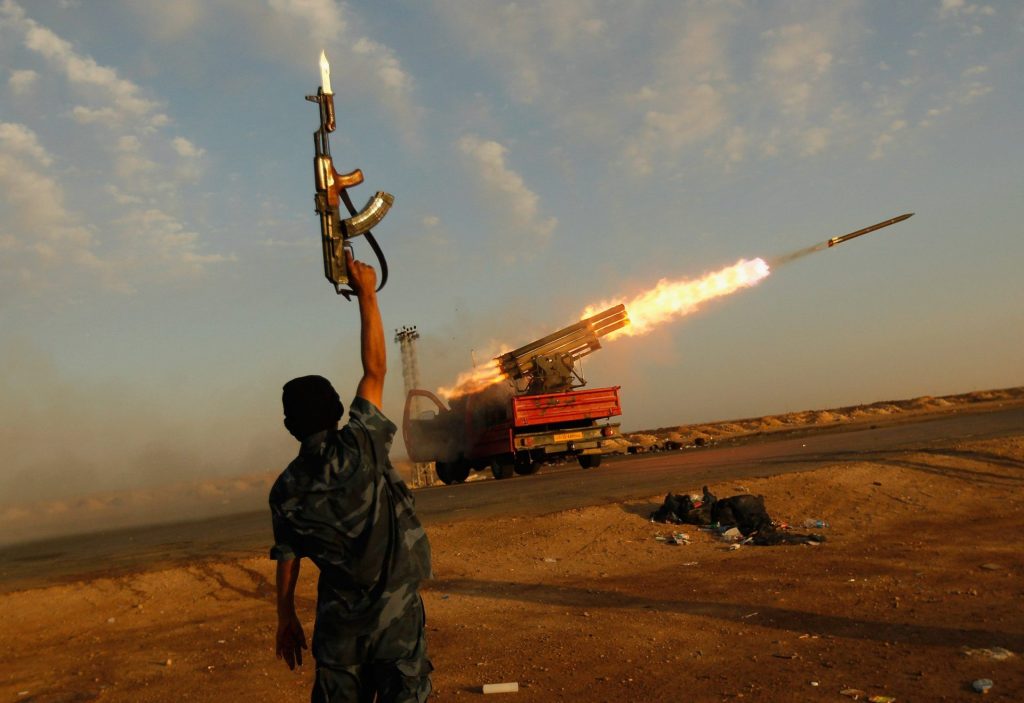
The US set aside the doctrines of containment and nuclear-armed deterrence which had governed relations with the Soviet Union. Confronted with the threat of radical Islam, rogue states and weapons of mass destruction, Bush, goaded by a combination of neo-conservatives and a bristling Donald Rumsfeld, defence secretary, elevated pre-emptive military action and regime change as his lodestars.
The counter-strategy was bold, dynamic and risky – especially when matched with an extravagant pledge to export freedom and democracy to Egypt, Saudi Arabia (15 of the 19 attackers hailed from the Desert Kingdom) and other despotic corners of the Middle East.
In theory, this ‘values-based’ foreign policy was entirely in the tradition of US foreign policy; in practice, the ‘realists’, many students of Henry Kissinger, were privately sceptical. Most kept quiet, with one exception.
General Brent Scowcroft, a two-time national security adviser to presidents Ford and George H.W Bush, warned that efforts to turn the Middle East into “a garden of democracy” were bound to fail.
The most effective response, he told me at the time, was a police and intelligence operation to track down the terrorists, working with allies and putting maximum pressure on those countries offering sanctuary, like Afghanistan.
Remote, ethnically diverse, xenophobic and fundamentally lawless, Afghanistan was the perfect hideout for Osama Bin Laden and his Al-Qaeda followers. When the Taliban’s leader Mullah Omar refused to hand over Bin Laden to the Americans, the fate of the regime was sealed. Within weeks, it was overrun by a combination of US air power and warlords stuffed with millions of dollars of American cash.
The ease of victory in Afghanistan was one factor in encouraging Bush to embark on ‘Phase Two’ of the global war on terror: taking out Saddam Hussein in Iraq. The story of the US-led coalition’s Blitzkrieg and the ill-fated occupation of Iraq is well documented. The consequences are less well understood.
First, the ‘war of choice’ against Iraq split Europe. Blair’s Britain sided with the Americans, alongside Spain and Poland, but at the expense of France and Germany who refused to join a war they saw as illegitimate and reckless.
Mistrust of the US still lingers, fuelling a desire for greater ‘strategic autonomy’ for Europe – a desire signally unfulfilled because EU member states are not prepared to stump up the money for serious military capability.
Second, invoking freedom and democracy destabilised the despotic regimes incubating radical Islam, laying the seeds of the Arab Spring.
Arguably, the Middle East autocrats needed a dose of modernisation. But in the last resort, president Obama was unwilling to follow through when confronted with popular uprisings in Egypt, Syria, Tunisia and Yemen. There was no Marshall Plan for the Middle East.
Only in Libya, where David Cameron and Nicolas Sarkozy cajoled the president into supporting regime change, did Obama, reluctantly, “lead from behind”. Gaddafi fell, but the Europeans were incapable of managing the aftermath.
In Syria, Obama made perhaps the greatest mistake of his presidency, drawing a red line on president Assad’s use of chemical weapons but failing to respond when the Syrian dictator broke his word – a telltale lack of presidential resolve.
Third, the very act of exercising US hegemony generated resistance, notably from Putin’s Russia. Spooked by the rhetoric (and reality) of regime change, Putin responded with the invasion of Georgia and, seven years later, the annexation of Crimea, followed by the insertion of Russian irregulars in eastern Ukraine. “There are no rules of the road,” explained his chief spokesman Demetri Peskov, a reference as much to his own country’s behaviour as America’s.
Fourth, the focus on the Middle East and Central Asia left less time for the US to address important transnational threats such as bio-security, pandemics and climate change. Most obviously, it failed to pay due weight to the rise of a more assertive China under president Xi (though Obama did try via his “pivot to Asia”, an unfortunate term which Beijing immediately denounced as a new containment policy).
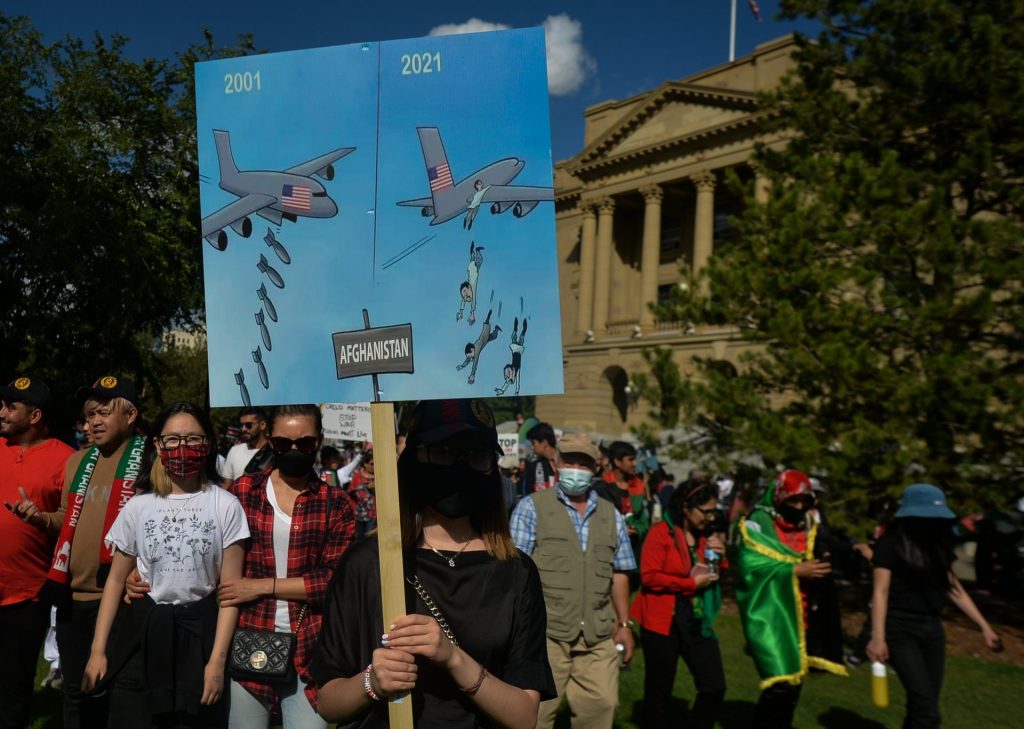
Fifth, the blood and treasure expended on the war on terror, coupled with a ‘squeezed middle’ as a result of stagnant wages and increasing income inequality, laid the ground for Donald Trump and his America First presidential campaign. The sense that it was time to rebuild at home and end the “forever wars” has carried over into the Biden presidency.
The Biden administration’s mantra is that the US can only be as strong abroad as it is at home. This is not a cover story to justify a new isolationism.
It reflects three interlocking domestic crises: a public health crisis; a social and economic crisis exacerbated by Covid (that budget surplus in 2001 has turned into $2 trillion deficit in 2021); and a crisis of American democracy, vividly captured by the Trump-inspired insurrection at the Capitol in January 6 this year.
Donald Trump as commander-in-chief tried to co-opt the military and then his own Republican party into overturning a legitimate election result.
hile the riot in the cradle of American democracy fell short of the Barbarians entering Rome it was a shocking indictment of a diseased body politic – ample evidence for the prosecutor’s case for American decline.
And yet. The US is in fact eminently capable of pursuing a vigorous domestic and foreign policy, even under the near octogenarian Biden. The means do exist. The US economy is running red-hot, the spirit of technological innovation is vibrant well beyond Silicon Valley, the dollar remains unchallenged as the world’s reserve currency, and that’s before we come to America’s unrivalled military might.
The challenge is how to make domestic and foreign policy mutually reinforcing. This would be hard enough at a time of intense political division, where many Republicans and Democrats appear to believe their opponents are a greater threat than foreign adversaries. And, certainly, the task has become harder in the aftermath of the Afghan misadventure.
Retreat is, after all, the most dangerous manoeuvre in politics, diplomacy and military affairs. Biden’s challenge is how to lead with a new foreign policy initiative that would divert attention from Kabul and reassure the rest of the world that America is indeed back, as he promised in his inaugural speech.
As Robert Zoellick, former World Bank president, has written in his history of US foreign policy, there is a precedent: Richard Nixon’s opening to China in 1972-3. The Nixon-Kissinger gambit changed the bilateral superpower stand-off into ‘triangular diplomacy’, with the Americans striving to sit at the apex of the triangle, closer to both communist powers than either was to the other. It was a brilliant manoeuvre that fundamentally reshaped world affairs for 40 years.
China’s rise under Xi poses a new set of challenges not as an ideological adversary like the Soviet Union but as a fearsome technological and economic competitor intent on challenging US dominance in the Pacific and beyond.
Biden’s chances of a strategic realignment similar to Nixon’s are slim (even as he tries to pry Putin’s Russia away from Xi’s China). His top aides have talked about convening an “alliance of democracies” comprising the UK, Europe, Japan, India and Australia, among others. But this has yet to materialise.
A more obvious immediate option is for the US to take the lead on a collective international response to the Covid pandemic, notably increasing the supply of vaccines to developing countries, most of whom are now on the frontline.
Deaths in Africa, South and South East Asia and Latin America are rising rapidly, but only a tiny percentage of citizens have been vaccinated. Without support from the advanced democracies, the developing world risks higher transmission of new variants, a deeper economic squeeze and popular unrest.
The second area ripe for action is climate change, specifically the run-up to the COP26 summit in Glasgow this autumn. Boris Johnson is hosting the summit, and desperately needs the US to do the heavy lifting. His government’s ill-disguised transatlantic tiff over the withdrawal from Afghanistan will not have improved the mood.
Yet when it comes to coaxing key players (and big carbon emitters) such as China and India into fresh commitments, the US is the pivotal actor. Biden and former secretary of state John Kerry are best placed to identify the trade-offs and muster the necessary coalitions. This is the stuff of global leadership.
In the short term, all eyes remain on Afghanistan. Biden’s cold calculation that the American public has no appetite for further military entanglements is probably correct, and that the focus must be on the global leadership race with China. Biden will also have figured that America’s allies have few good options.
The Europeans have talked a good game about assuming greater responsibility for their own security but it has come to little. The Poles and Baltic states are unlikely to look to Berlin or Paris for their own defence.
Japan will not come to terms with China anytime soon. South Korea will not yield to Beijing on North Korea. India, which feels increasingly squeezed by its giant Asian neighbour, will continue its pro-US tilt.
What we have witnessed in the two decades after 9/11 is therefore not the crumbling of American power but the end of American hegemony. How the international system adjusts depends on America’s own vitality which has been sapped by political division as much as the two longest wars in US history in Afghanistan and Iraq.
Francis Fukuyama, author of The End of History, the seminal work which captured the moment when liberal democracy triumphed over communism after 1989, says that America should not seek to maintain hegemony. The objective should be to sustain, with like-minded countries, a world order friendly to democratic values. “Whether it can do this,” he wrote in the Economist, “will depend not on short term actions in Kabul but on rediscovering a sense of national identity and common purpose at home.”


